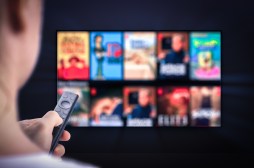What You Need to Know About Sleep Tracker Accuracy

Sleep trackers have become increasingly popular as people seek to understand and improve their sleep patterns. With the rise of wearable devices and smartphone apps, many wonder just how accurate these modern sleep tracking tools really are. In this article, we’ll explore the technology behind sleep trackers, their accuracy, and what you should keep in mind when using them.
Understanding How Sleep Trackers Work
Modern sleep trackers typically use sensors such as accelerometers to monitor movement, heart rate monitors to track physiological signals, and sometimes even microphones to detect sounds like snoring or breathing irregularities. By analyzing this data, these devices estimate different stages of sleep—light, deep, REM—as well as total sleep time.
Factors Affecting Accuracy of Sleep Trackers
The accuracy of sleep tracking depends on the quality of sensors and algorithms used by the device. Movement-based trackers can sometimes mistake periods of stillness for actual sleep or fail to detect restless movements during light sleep stages. Heart rate variability sensors provide more detailed insights but may still lack precision compared to clinical polysomnography (sleep studies). Placement on the body and user behavior also influence data quality.
How Accurate Are Modern Devices Compared to Clinical Standards?
Clinical polysomnography remains the gold standard for measuring sleep since it records brain waves alongside other physiological parameters. While consumer-grade devices cannot match this level of detail, recent studies suggest that some modern wearables achieve reasonable accuracy in estimating total sleep time and distinguishing between awake and asleep states—often within 80-90% agreement with clinical methods. However, they are less reliable at accurately identifying specific sleep stages.
Practical Tips for Using Sleep Trackers Effectively
To get meaningful insights from your device: wear it consistently according to manufacturer guidelines; avoid sleeping with excessive movement; regularly update device software; interpret results as general trends rather than precise measurements; combine tracker data with subjective assessments like how rested you feel.
The Future of Sleep Tracking Technology
Advancements in sensor technology and machine learning algorithms continue improving the accuracy of consumer-grade devices. Integration with other health metrics promises more comprehensive insights into overall wellness. While not a substitute for medical diagnosis, modern devices offer valuable tools for monitoring habits and encouraging better sleep hygiene.
In summary, while modern sleep trackers may not be perfectly accurate compared to clinical tests, they provide useful approximations that can help improve your understanding of personal sleep patterns over time. Using them wisely alongside healthy lifestyle practices can lead you toward better rest every night.
This text was generated using a large language model, and select text has been reviewed and moderated for purposes such as readability.


